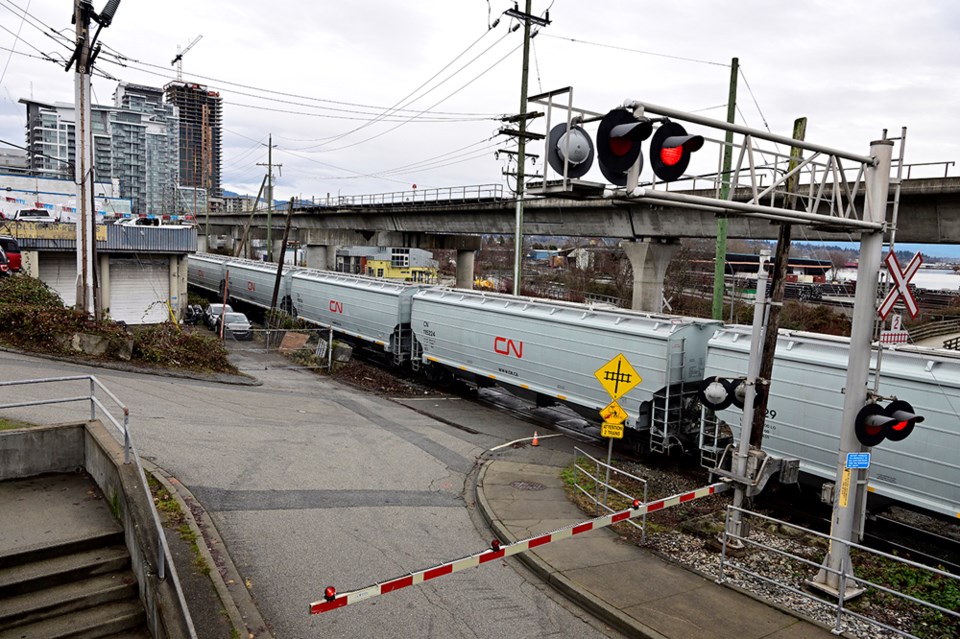Editor:
As a longtime resident in New West, here is my take about train noise:
Several freight railways operate in New West: the Canadian National (CN), the Canadian Pacific (CP), the Burlington Northern and Santa Fe (BNSF), the Southern Railway of British Columbia (SRBC), the Southern Railway of Vancouver Island (SRVI) and the Englewood Railway (ER).
According to the city, New West is committed to achieve city-wide cessation at all public train rail crossings, 22 of them, of which 12 are on the mainland and 10 in Queensborough — through negotiations with the rail companies, various government agencies and Transpo Canada, subject to certain required upgrades, which take time and more negotiations while still train blasting sounds awaking residents in the early morning hours.
Air, road and railway traffic are the three major sources of traffic noise during day, nighttime and early a.m. sleeping hours. In particular, long freight trains passing through public railway train crossings sounding their horns for 15 to 25 seconds sec in a pattern of two long sounds, one short and one long blast, delivering a loud sound noise between 96-120decibels (loudness of sound is measured in dB when 85db of a sound can cause hearing damage).
This noise, during a.m. hours, when people are in light or deep stage sleep, can cause not only annoyance but also distress and adverse health and physiological reactions in large parts of the population, according to environmental noise research scientists. Furthermore, poor quality sleep over a long period of time is linked with high blood pressure, heart disease, weight gain, type 2 diabetes, and certain types of cancer.
The World Health Organization (WHO) has guidelines for the regulation on the effects of environmental noise on sleep as it is critical to our health to get sufficient undisturbed sleep and is important to feel good and perform well in our personal, business and public activities.
As a recent commenter asked, really, is all that blasting horn sound at 3 a.m. necessary? "Isn’t there a more modern way to deal with this? A more quiet way? A silent way?”
Indeed, there is a quiet way and a way also to establish certain public train crossing quiet zones.
How about replacing the blasting sound of the train horn with a “BEL,” which can service the same purpose as it is used by the locomotive engines in West Vancouver when passing through Dundarave and Ambleside neighbourhoods, until New West resolves the train noise for its residents while negotiating with the rail companies, government agencies and Canada Transpo before a large part of the New West population is impaired with adverse health and physiological chronic disabilities?
Christos Theodorakakis, New Westminster





